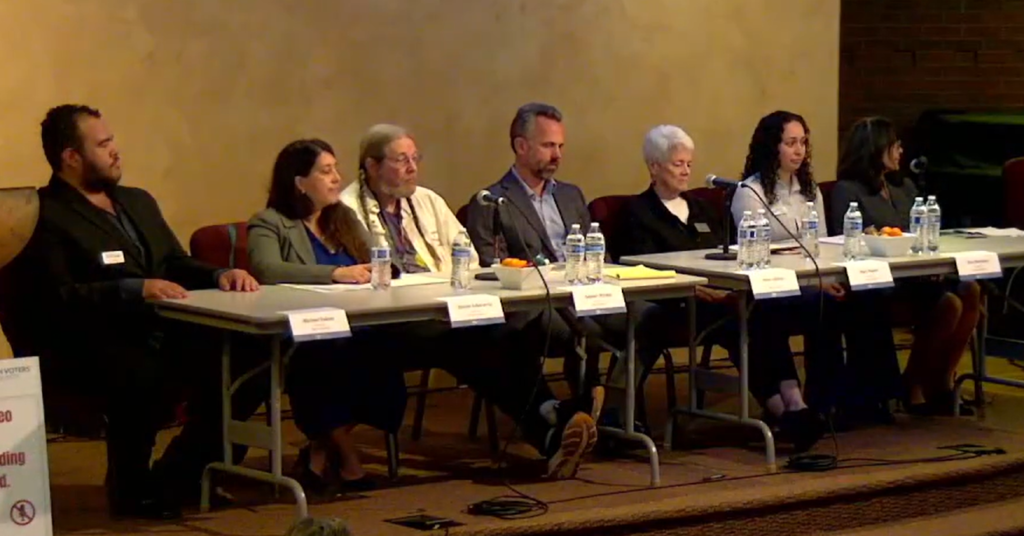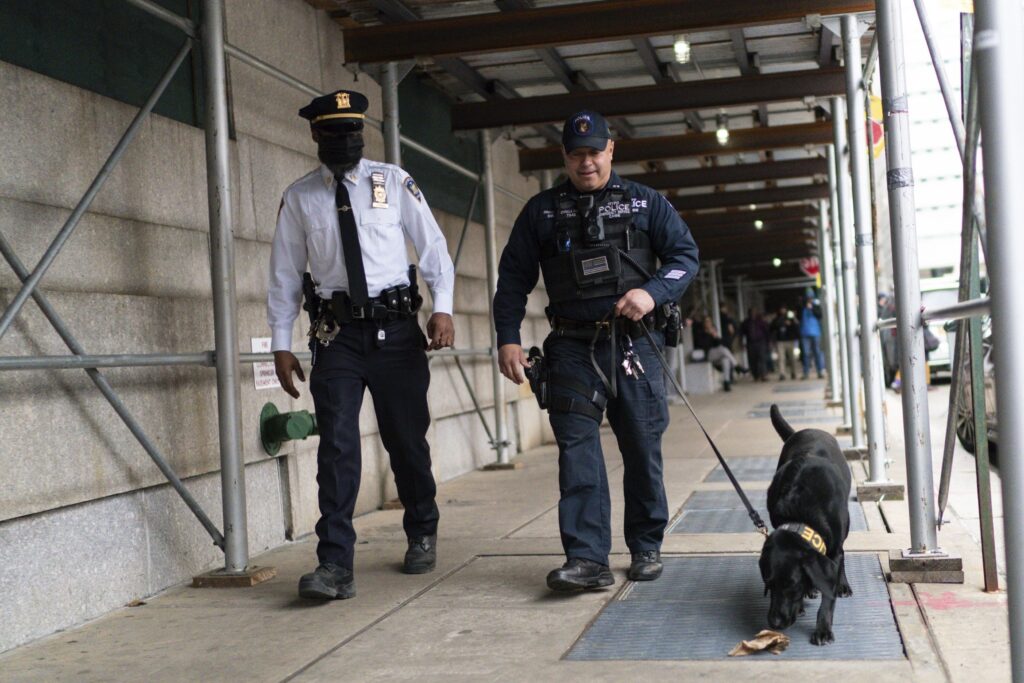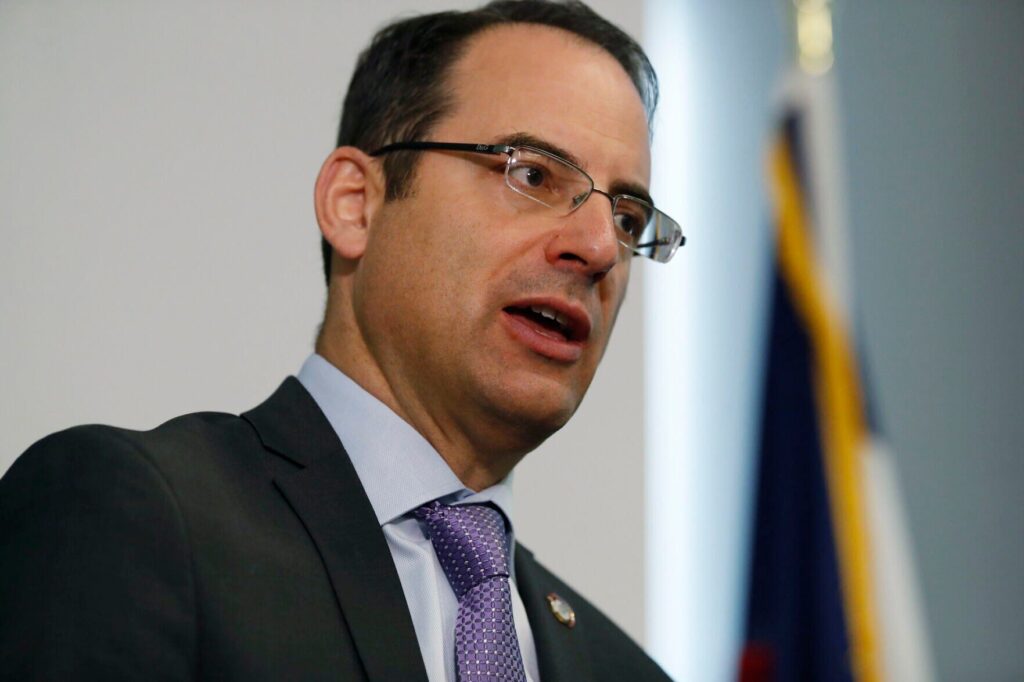Aurora council to vote on ‘tough love’ homeless approach, domestic violence case handling
Aurora councilmembers will address several awaited issues in Monday’s study session and council meeting.
That includes a proposed “tough love” approach to homelessness, a proposal to remove domestic violence cases from municipal court, an ordinance changing the makeup and term limits of the Aurora Housing Authority and a proposal to increase the number of dogs a city resident can have.
At Monday night’s study session, councilmembers will hear a proposal to remove domestic violence cases from municipal court, instead handing them off to county, state or federal court.
The proposed ordinance, first presented in early May by councilmembers Dustin Zvonek and Danielle Jurinsky to the Public Safety, Courts and Civil Service Policy Committee, says the municipal court “may not hear domestic violence cases.” It stipulates that domestic violence cases should instead be filed in the appropriate county, state or federal court.
In Colorado, Aurora is one of four municipalities — the other three are Lakewood, Westminster and Denver — that handles domestic violence cases.
Aurora’s municipal court has been handling domestic violence since it began, with reported increases in domestic violence cited as part of the reason for the court’s creation. The rationale is that municipal court could handle them more quickly than state or county court, according to a 2021 review of Aurora’s public defense system from the National Legal Aid and Defender Association.
However, proponents of the ordinance said this costs taxpayers more than necessary and moving these cases to county courts instead would save the city money and resources. No law firms replied to an request for proposals (RFP) to handle domestic cases.
At Monday’s regular meeting, councilmembers will return to conversations about the city’s proposed “tough love” approach to homelessness, which was put off at the last meeting due to several councilmembers missing.
The approach would harshen the city’s camping ban and create a new court system for low-level offenses by homeless people.
Mayor Mike Coffman has referred to the proposed approach to homelessness as “tough love,” due to its cracking down on camping in the city while addressing the root causes of homelessness in court.
The first ordinance, if passed Monday night, would strengthen laws against urban camping in the city, adding areas that are “Closed to Camping” to the city code, according to council documents.
In “Closed to Camping” areas, unauthorized camps can be immediately abated without prior notice.
The second part to the proposal is a resolution that would establish what council documents call the Aurora HEART (Housing, Employment, Assistance, Recovery, Team) program in Aurora Municipal Court.
Homeless people who have been charged with trespassing or “similar non-domestic violence low level non-violent municipal ordinance offenses” will be eligible to participate in the court system, where they would be offered services and can use them in exchange for closure of the case, according to council documents.
Also Monday, Councilmember Dustin Zvonek will bring forward an ordinance to change the makeup of the Aurora Housing Authority — which owns and manages more than 950 rental housing units, adding an ex officio member and change term limits.
Aurora Housing Authority currently administers 1,266 HUD Section 8 Housing Choice Vouchers and about 700 portable vouchers with an annual value to the community of more than $22.6 million, according to its website.
Currently, the mayor appoints the members of the board to five-year terms without term limits.
The proposal, if it passes in an upcoming regular council meeting, would reduce the terms to three years and add a two-term limit.
The idea, Zvonek said, is to treat the housing commissioners much like the planning commissioners, who have to apply for the positions and get approval from the council.
In the regular meeting, councilmembers will also vote on a resolution of support for a new citywide campaign called “Together We Keep Aurora Beautiful,” which would raise awareness and promote pride in keeping the city clean through beautification events and service projects, according to council documents.
Councilmember Francoise Bergan is bringing forward an ordinance that would increase the number of dogs any person is allowed to have in the city from three to four, according to council documents.
If passed, the ordinance would change the city code to read: “It shall be unlawful for any person to keep or harbor more than four dogs on any premises, except puppies whelped by dam at the residence.”
Finally, councilmembers will pass a final vote on an ordinance that would remove the “sunset provision” on a law requiring mandatory minimum jail sentences for car theft.
The original ordinance putting the mandatory minimum sentences in place was approved by the city council in July of 2022.
Since the program was new, the council added a “sunset provision” to it, essentially making it more of a pilot program that would expire in 2024 unless the council voted to extend it.
The study session will be held at 5:15 p.m. in the Aurora Room of the Aurora Municipal Center, 15151 E. Alameda Parkway.
The council’s regular meeting will start at 6:30 p.m. in the Paul Tauer Aurora City Council Chamber, 15151 E. Alameda Parkway.
Both meetings will also be live streamed at auroraTV.org and Youtube.com/TheAuroraChannel. They will also stream live on cable channels 8 and 880 in Aurora.
Those who want to speak during “Public Invited to Be Heard” must submit a speaker slip by 6:30 p.m. Monday, the day of the meeting. Anyone who wants to comment on an agenda item must submit a speaker slip before the city clerk reads the title of the item.











